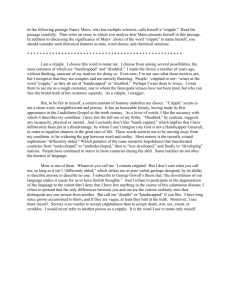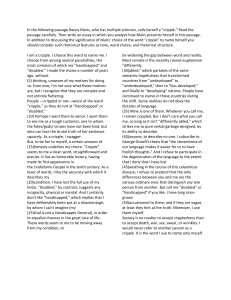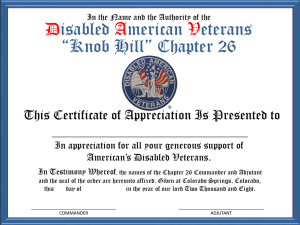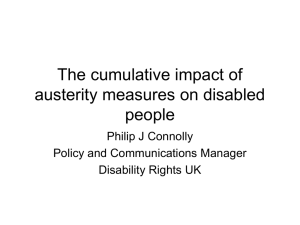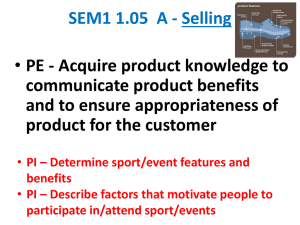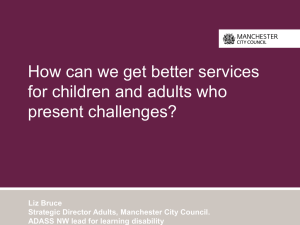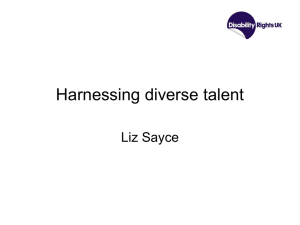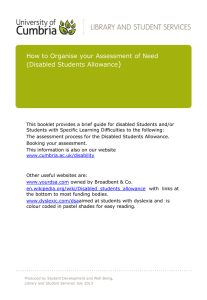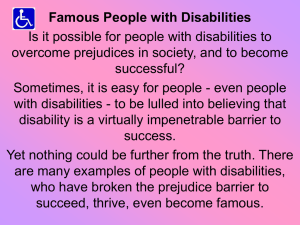Syntax
advertisement
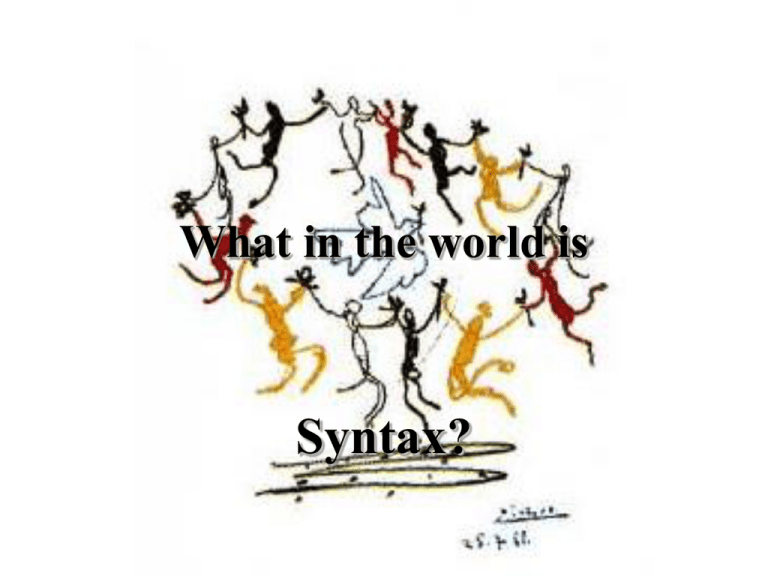
What in the world is Syntax? Syntax: how the sentence is constructed and how it contributes to and enhances meaning and effect In other words: How the author puts the words together How this helps the author tell the story It’s like in the movies-----when the characters are in trouble, the music gets quick and frantic when there’s a love scene, the music gets slow & melodious Now……… How does an author do this with words & sentences? In order to quicken the pace, the author will use shorter, monosyllabic words in short, simple sentences. In order to slow down the pace, the author will use longer, polysyllabic words in complex and convoluted sentences. When analyzing syntax, consider such questions as: • Are the sentences simple and direct, or complex and convoluted? • How do dependent clauses relate to main (independent) clauses? • How does the author use repetition or parallel structure for emphasis? (and always say what it emphasizes and why) • Does the author write periodic or cumulative sentences? • Are there instances of balanced sentences or antithesis? • Are there rhetorical questions in the passage? • Are ideas set out in a special way for a purpose or effect? Arrangement of Ideas – Are ideas set out in a special way for a purpose or effect? • Loose sentence: makes complete sense if brought to a close before the actual ending.(main point is “frontloaded”) ex. We reached Edmonton / that morning / after a turbulent flight / and some exciting experiences. • Periodic sentence: makes sense only when the end of the sentence is reached. (main point is “end-loaded”) ex. That morning, after a turbulent flight and some exciting experiences, we reached Edmonton. • Parallel structure: refers to a grammatical or structural similarity between sentences or parts of a sentence. It involves an arrangement of words, phrases, sentences, and paragraphs so that elements of equal importance are equally developed and similarly phrased. wrong: In the winter, I usually like skiing and to skate. right: In the winter, I usually like skiing and skating. right: In the winter, I usually like to ski and to skate. additional ex. He was the kind of man who knew what he wanted, who intended to get it, and who allowed nothing to stand in his way. • Natural order sentence: a sentence where the subject comes before the predicate (main verb) ex. Oranges grow in California. • Inverted order sentence: a sentence where the predicate (main verb) comes before the subject. ex. In California grow oranges. • Split order sentence: divides the predicate into two parts with the subject coming in between. ex. In California grow oranges. An author will vary these sentences for an effect – and it is your job to decide what effect (s)he was trying to achieve Sentence Classifications Consider the following four basic types in examining sentence structures • Declarative: makes a statement ex. The king is sick. • Imperative: gives a command ex. Bow to the king. • Interrogative: asks a question ex. What’s the matter with the king? • Exclamatory: makes an exclamation ex. The king is dead! Four Basic Structures • Simple sentence: one independent clause* ex. The singer bowed to her adoring audience. • Compound sentence: two or more independent clauses (joined by a comma with a coordinating conjunction—and, but, for, or, nor, yet, so—or a semicolon) ex. The singer bowed gratefully to the audience, but she sang no encores. ex. The singer bowed gratefully to the audience; however, she sang no encores. *an independent clause has a subject and a verb, and can stand alone because it has a complete thought • Complex sentence: one independent clause and one or more dependent (subordinate) clauses.* ex. Although the singer bowed gratefully to the audience, she sang no encores. • Compound-complex sentence: two or more independent clauses and at least one dependent (subordinate) clause. ex. The singer bowed gratefully while the audience applauded, but she sang no encores. * A dependent (subordinate) clause has a subject and a verb; however, it cannot stand alone because it does not have a complete thought Always look for the anomalies – that is, the things that are different from regular writing. And remember – syntactically, you create emphasis by: • Position – where you put something in the sentence • Proportion – the size of the idea and how much of the piece the idea takes up • Isolation – setting it off by itself • Repetition – the number of times something is repeated The author did this on purpose – there is nothing serendipitous (by chance) in literature So let’s look at a paragraph by Nancy Mairs----- I am a cripple. I choose this word to name me. I choose from among several possibilities, the most common of which are “handicapped” and “disabled.” I made the choice a number of years ago, without thinking, unaware of my motives for doing so. Even now, I’m not sure what those motives are, but I recognize that they are complex and not entirely flattering. People – crippled or not – wince at the word “cripple,” as they do not at “handicapped” or disabled.” Perhaps I want them to wince. I want them to see me as a tough customer, one to whom the fates/gods/viruses have not been kind, but who can face the brutal truth of her existence squarely. As a cripple, I swagger. What’s the first thing you notice that’s different? The sentence: I am a cripple Why does the author use this short sentence (and in the first sentence – remember, position)? To draw attention to the politically incorrect word -----cripple And why use the word? To shock, and to show that even though people don’t call her this to her face, the word is always present So what do you notice next? What’s different? I am a cripple. I choose this word to name me. I choose from among several possibilities, the most common of which are “handicapped” and “disabled.” I made the choice a number of years ago, without thinking, unaware of my motives for doing so. Even now, I’m not sure what those motives are, but I recognize that they are complex and not entirely flattering. People – crippled or not – wince at the word “cripple,” as they do not at “handicapped” or disabled.” Perhaps I want them to wince. I want them to see me as a tough customer, one to whom the fates/gods/viruses have not been kind, but who can face the brutal truth of her existence squarely. As a cripple, I swagger. Remember? Isolation These words are in quotation marks to isolate them. Why? To show how people try to pretty up the word, cripple? – maybe because it is uncomfortable for people to face the person who is crippled So what do you notice next? What else is different? I am a cripple. I choose this word to name me. I choose from among several possibilities, the most common of which are “handicapped” and “disabled.” I made the choice a number of years ago, without thinking, unaware of my motives for doing so. Even now, I’m not sure what those motives are, but I recognize that they are complex and not entirely flattering. People – crippled or not – wince at the word “cripple,” as they do not at “handicapped” or disabled.” Perhaps I want them to wince. I want them to see me as a tough customer, one to whom the fates/gods/viruses have not been kind, but who can face the brutal truth of her existence squarely. As a cripple, I swagger. Remember: repetition but also isolation If you repeat a distasteful word – it becomes less distasteful. Perhaps she wishes that if you confront the word, you will eventually be able to look at her, the person, not just her, the cripple. Doesn’t this seem to point out that it’s not only people who are not crippled who wince at the word? And crippled people not only have to wince at the word – they have to live with actually being crippled So what do you notice next? What else is different? I am a cripple. I choose this word to name me. I choose from among several possibilities, the most common of which are “handicapped” and “disabled.” I made the choice a number of years ago, without thinking, unaware of my motives for doing so. Even now, I’m not sure what those motives are, but I recognize that they are complex and not entirely flattering. People – crippled or not – wince at the word “cripple,” as they do not at “handicapped” or disabled.” Perhaps I want them to wince. I want them to see me as a tough customer, one to whom the fates/gods/viruses have not been kind, but who can face the brutal truth of her existence squarely. As a cripple, I swagger. Repetition – harsh word – wince Why? Perhaps to show you that you aren’t the only one who is uncomfortable by someone who is crippled. She is still a person – look past the condition to the person. So what do you notice next? What else is different? I am a cripple. I choose this word to name me. I choose from among several possibilities, the most common of which are “handicapped” and “disabled.” I made the choice a number of years ago, without thinking, unaware of my motives for doing so. Even now, I’m not sure what those motives are, but I recognize that they are complex and not entirely flattering. People – crippled or not – wince at the word “cripple,” as they do not at “handicapped” or “disabled.” Perhaps I want them to wince. I want them to see me as a tough customer, one to whom the fates/gods/viruses have not been kind, but who can face the brutal truth of her existence squarely. As a cripple, I swagger. Position: fates/gods/viruses Why have these juxtaposed (jammed right next to each other)? Don’t we blame fate & the gods for someone being crippled? Who does she blame? The virus that attacked her? So what do you notice next? What else is different? I am a cripple. I choose this word to name me. I choose from among several possibilities, the most common of which are “handicapped” and “disabled.” I made the choice a number of years ago, without thinking, unaware of my motives for doing so. Even now, I’m not sure what those motives are, but I recognize that they are complex and not entirely flattering. People – crippled or not – wince at the word “cripple,” as they do not at “handicapped” or disabled.” Perhaps I want them to wince. I want them to see me as a tough customer, one to whom the fates/gods/viruses have not been kind, but who can face the brutal truth of her existence squarely. As a cripple, I swagger. What did the author do here? • Repetition – cripple • Position – last, short abrupt sentence • Use of the action verb – swagger to refer back to her as a tough customer Why? We don’t look at her as a person, but as a cripple. We’re wrong – but she is strong enough to handle it So why did the author write this essay? • To get us over being uncomfortable with the word cripple? • To get us over being uncomfortable with people who are crippled? • To get us to see crippled people as merely people? • To let us know that they have to live with being crippled? Do you see why syntax can be an important key in writing?
